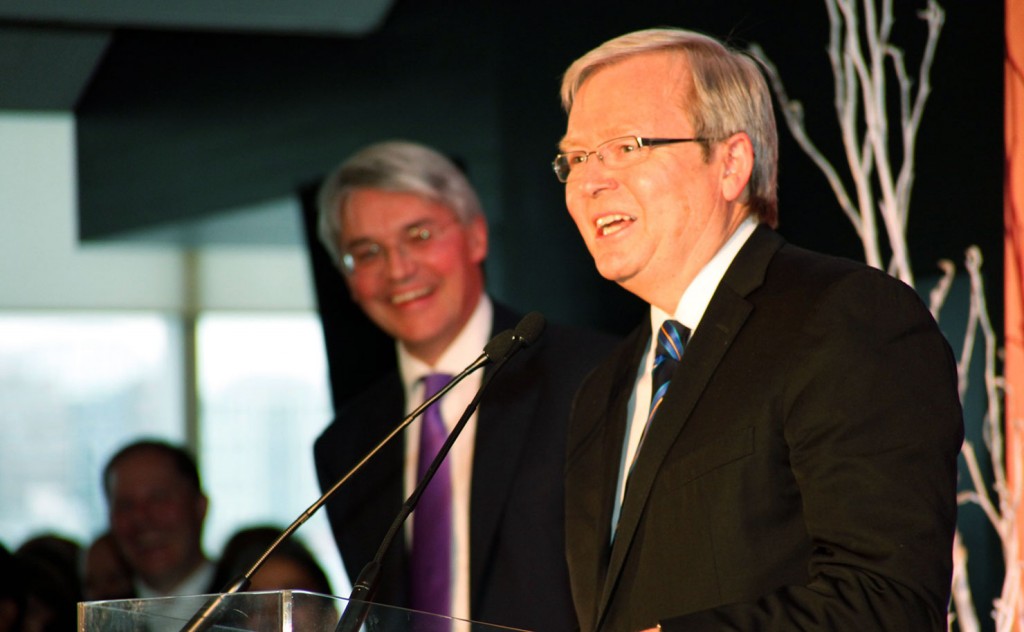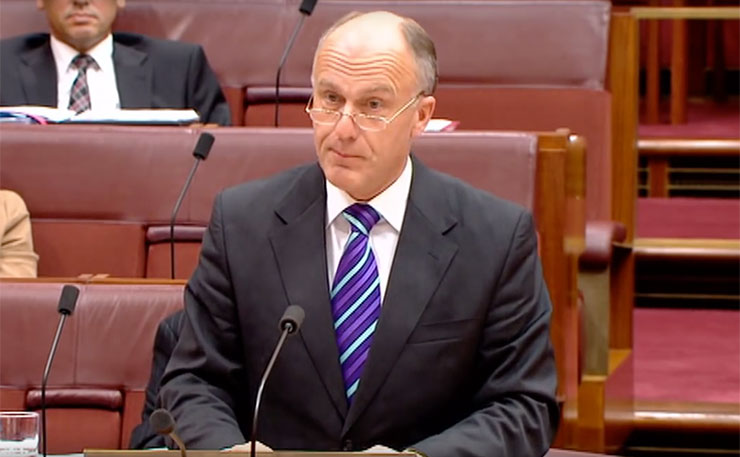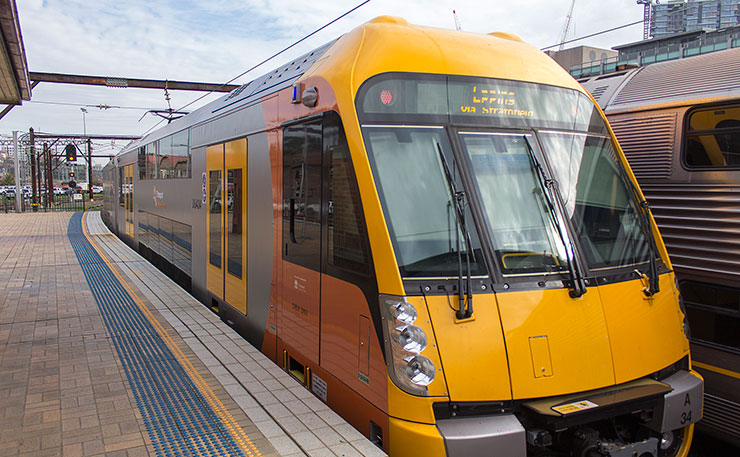If you’re going to cause traffic congestion, you can’t engage in a strike. But luck if you’re striking because you’re being screwed by your employer. Michael Brull explains.
The Fair Work Commission was set up as part of the raft of reforms instituted by the first government of Kevin Rudd in 2009. As many readers would remember, ‘Kevin07’ was swept into power on the back of a massive union-led campaign against WorkChoices, the horrendous industrial relations regime forced on Australia after John Howard swept the 2004 federal election (thanks Latham!).
The Fair Work Act 2009 was more or less a compromise, between the unions who had helped Rudd win office, and big business which didn’t want to see Labor going overboard in restoring the rights of workers.
Thus, the Fair Work Commission (FWC) was established. It has the power to suspend or terminate industrial action, like strikes, under the legislative scheme established by Labor. If the FWC is satisfied that the industrial action would threaten the personal safety or health of part of the population, or that it would cause “significant damage” to an “important part” of the Australian economy, the FWC must terminate or suspend the industrial action.
Alternatively, the FWC must consider if suspending the industrial action would be beneficial in resolving a bargaining dispute, or any other matter the FWC considers relevant. If it thinks any of those other matters make it appropriate to suspend the action, then the FWC must do so.

In short, the FWC can canvas a wide range of issues in deciding whether to suspend industrial action, and must do so in envisioned circumstances that are quite broad.
How broad was established again in the decision to suspend the threatened train strike on Monday 29 January. The legal representatives of Sydney and NSW Trains and the NSW Government argued that the proposed strike would cause economic damage to the economy of Sydney, and indeed would have ripple effects. They presented modelling from their favoured experts that the one-day of striking could cause $90 million worth of economic damage.
Further, they argued that the strike would also cause medical and safety harm, by possibly preventing nurses, doctors, police officers, fire-fighters, ambulance officers and so on from getting to work.
The legal representative of the trade unions, the Australian Rail, Tram and Bus Industry Union, and the Association of Professional Engineers, Scientists and Managers Australia responded by challenging the evidence of each expert called by Sydney Trains and the government. Mr Howell argued that the evidence was far less clear and certain that harm would be caused in terms of people’s welfare and economy. He also argued that even if they were correct about the economic harm, $90 million dollars in an economy worth some $600 billion each year is “miniscule”.
The counterargument was more or less unanswerable. Mr Seck explained that in “the Qantas case, your Honour… the figures which were used there was $20 million per day. That was the evidence accepted by the Fair Work Commission in deciding to terminate the industrial action. If $20m per day was sufficient in Qantas and we apply them, we have got $50 million a day here which is more than two times. So if we are looking at fair numbers it is not moderate, it is significant.”
In the end, Senior Deputy President Hamberger ruled that the strike “threatens to endanger the welfare of a part of the population” – not just those who depend on the trains to go to work or school or “otherwise go about their business”, but also “all those who will suffer from the increased congestion on the roads that would be an inevitable consequence of the industrial action.”
That is, “increased congestion on the roads” apparently now counts as enough of a reason for the FWC to suspend strike action. Indeed, the provision in question could also be used to terminate industrial action – for increased congestion on the roads. The bar has been set very, very low for the kind of harm to part of the public’s “welfare” that is severe enough to suspend a strike. It should be noted: congested roads could equally be taken as a reason to prevent a political demonstration.
Senior Deputy President Hamberger also found that “the industrial action threatens to cause significant damage to the economy of Sydney – the largest and most economically important city in Australia”. Whilst many in Sydney might take patriotic pride in our economy being apparently juridically the most important city in Australia, it appears living here is a liability for the purpose of engaging in industrial action.
The ruling is a profound setback for the right to engage in industrial action. If congested roads is enough harm to the public for the FWC to suspend a strike, it is likely that many more professions will simply not be allowed to perform strikes. For example, the list of occupations that Seck listed as threatened by the strike (health workers, firefighters etc) would presumably cause relevant harm if they went on strike. Likewise for teachers, given the reasoning includes children not being able to go to school.
As for the FWC, it should be noted that its members are appointed by the government of the day. Coalition governments have traditionally used the occasion to push representatives of business interests. Last year, Australian Council of Trade Unions Secretary Sally McManus complained that Employment Minister Michaelia Cash was stacking the FWC “with her political allies”. These included a former Australian Chamber of Commerce and Industry chief executive. Another was a senior lawyer who Senator Eric Abetz praised, having “worked closely” with her in the Department of Employment.

Labor complained that Prime Minister Malcolm Turnbull had adopted Tony Abbott’s “hard line ideology” on appointments. Of 10 appointments under Abbott and Turnbull, they have all “represented employers in one capacity or another and zero… have represented workers”.
In April 2013, Rachel Nickless reported in the Financial Review that “John Howard was no stranger to stacking the federal workplace tribunal – just two of his appointments to the tribunal came from a union background in his 11 years as prime minister. The Gillard government made more effort to be even-handed in its previous appointments but that changed in the latest round announced on March 28. The eight appointees are generally well-regarded but not one is from an employer association or industry. Most have links to Labor or the union movement.” The Gillard government proceeded to create two new vice-presidential roles for no apparent reason.
That is, the Coalition generally appoints hardline pro-business members. Labor is more balanced, but generally favours people with links to Labor or the unions. Hamberger was appointed to the FWC’s predecessor in 2004 by Coalition Employment Minister Kevin Andrews. He was a former adviser to Coalition Workplace Minister Peter Reith. The ALP and ACTU both reacted with frustration to the appointment, which was described by Fairfax as one of two conservative appointments.
Whilst the FWC’s inevitably partisan appointments deserve some blame, the legislation itself is also worth critique. It gives broad discretion to the judgment of members, who can suspend and terminate strikes on thin grounds.
The legislation does not bind the FWC to favour workers in these disputes in any meaningful way. The FWC was not compelled to consider the working conditions of people who work on the trains. It was not compelled to consider whether they had proper job security, or if they were given enough notice of shifts to meaningfully plan their lives. When it considers economic harm, the view is strictly from above. Not below, from the point of view of workers.
The day after the strike was supposed to happen, a study was released. It found that there is a “close statistical relationship” between the decline in strikes and stagnating wages. According to journalist Anna Patty, it found that “there has been a one percentage point deceleration in wage increases for every decline in the frequency of work stoppages of about 60 lost work days per 1,000 workers per year”. The Fair Work Act doesn’t ask the FWC to consider that sort of economic harm. The FWC doesn’t have to consider the effect on workers across Australia when it suspends industrial action on such an incredibly broad basis.
These are problems which can’t just be fixed by appointing different people to the FWC. These are more fundamental problems that apply to the whole system under the Fair Work Act which need to be addressed.
Donate To New Matilda
New Matilda is a small, independent media outlet. We survive through reader contributions, and never losing a lawsuit. If you got something from this article, giving something back helps us to continue speaking truth to power. Every little bit counts.




